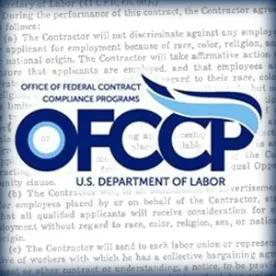In the third of three new Directives (Directive (DIR) 2020-04), OFCCP has formalized and clarified the role of the Ombudsman in facilitating resolution of conflict between contractors and OFCCP.
The Ombuds Service Protocol, among other important clarifications to Directive (DIR) 2018–09, states:
The mission of the Ombuds Service is to offer an impartial and independent perspective to conflicts between external stakeholders and OFCCP, providing a neutral and, to the extent permitted by law, confidential resource while advocating for fair, efficient, and transparent policies and procedures.
Notably, the bolded terms above are in the original version of the Protocol. OFCCP wants us to know that the Ombuds Service is not simply another arm of OFCCP’s enforcement mechanism.
Consistent with many of Director Craig Leen’s other initiatives, the Ombuds Service is a direct response to prior criticisms that stakeholders did not trust the Agency to provide assistance without making them “a target for future OFCCP enforcement actions, such as compliance evaluations.”
The Protocol is comprehensive. It provides an Ombuds Service Overview, including goals for the Service; specific Standards of Practice, including the meaning and limits of the principles of confidentiality, neutrality and independence; and, Ombudsman Functions, including that the Ombudsman will not, “Advocate for any one individual or entity before, during, or after a particular dispute.”
The Protocol concludes by encouraging those “unsure about whether to contact the Ombuds Service” to reach out for more information. “If unable to be of direct assistance, the ombudsman can direct you to the appropriate person, division of OFCCP, or agency within the Department of Labor.
Marcus Stergio is the current OFCCP Ombudsperson. There are three ways to contact him:
-
Phone: 202-693-1174
-
Email: stergio.marcus@dol.gov
-
Ombuds Service Referral Form
Under the Protocol, we believe the Ombuds Service promises to be a useful resource for contractors not only for resolving conflict, but also for better understanding OFCCP processes and procedures that the Agency may previously have been reluctant to share with contractors.




 />i
/>i
